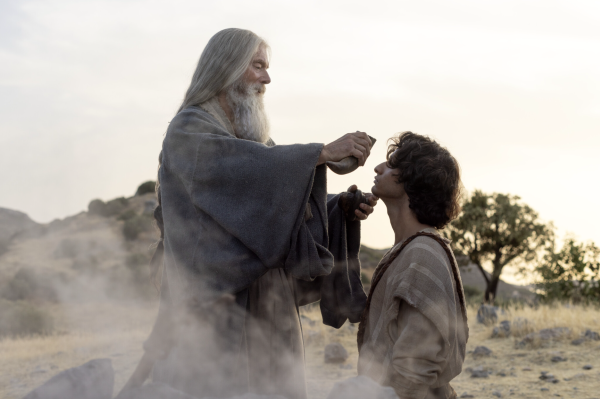Cliques, exclusion top reasons Americans aren't getting more involved in their churches: survey

Exclusion and the existence of cliques are the most common reasons why Americans don't want to get more involved in their churches and houses of worship, even though most don't report any negative experiences with their congregations, a new survey suggests.
The American Bible Society released the fifth chapter of its "State of the Bible USA 2024" report Thursday. The latest installment focuses on Americans' involvement with worship communities and what factors lead them to increase or decrease their involvement with their own congregations.
The data is based on responses collected from 2,506 United States adults between Jan. 4 and 23, 2024. The sample has an error margin of ±2.73 percentage points.
When asked which positive experiences increase their "level of participation in a church, temple or faith community," all respondents were given nine responses to select from.
About 42% said they did not participate in any such community, even though the share of respondents with no religious affiliation made up 26% of the sample, suggesting a "nominal" demographic that identifies with a religion but doesn't participate in it.
Among those who said they do participate in faith communities, 55% identified a "feeling of community and belonging" as a factor that made them want to get more involved with their faith communities. Fifty-three percent cited "shared spiritual beliefs and faith," while 51% stated "meaning and purpose" (51%) as factors that made them want to increase their involvement with their faith communities.
Less common draws for increased faith community participation among churchgoers include "worship and ceremonies" (48%), "religious education and learning" (38%), a "cultural or family tradition" (29%), "community service and outreach" (27%) and a "conversion or religious experience" (24%).
A majority (52%) of the respondents, both those with and without faith community backgrounds, did not report any "negative experiences" at a "church, temple, or faith community" that caused them to decrease their "level of participation." However, the most commonly cited "negative experience" repelling people from their congregations was an appearance of "exclusion or cliques within the faith community," reported by 20% of those surveyed.
Additional factors that caused people to "decrease church participation" include "judgment or condemnation for my beliefs or lifestyle choices" (19%), "disagreement with the faith community's biblical teaching or social commentary" (18%), "financial improprieties or exploitation within a faith community" (14%), conflicts within a faith community that were not resolved satisfactorily" (12%), "spiritual manipulation or abuse within the faith community" (11%), failure to receive sufficient care when needed (7%) and feeling unsafe (5%).
"While some might feel reassured that 'only' about a fifth of the population mentioned cliques or judgment, this represents about 50 million Americans who say they participate less in a faith community for these reasons," the report stated.
American Bible Society Chief Innovation Officer and State of the Bible series Editor-in-Chief John Farquhar Plake insisted that congregations would "benefit from our nationwide research about what people like and dislike about their churches."
"The top answers, for both positive and negative responses, are about belonging," Plake said in a statement. "When churchgoers feel that they belong, they participate more. And when they feel excluded by cliques, they drift away."
Generation X, defined as the group of Americans born between 1965 and 1980, was the most likely to report exclusion or existence of cliques in their church or faith community that pushed them away to some degree (24%), while a nearly identical percentage of millennial respondents (23%) said the same. The report defines millennials as adults born between 1981 and 1996.
Smaller shares of adults born in 1964 or earlier (20%) and Gen Z (19%), born between 1997 and 2012, acknowledged cliques and exclusion as factors that pushed them away from their faith communities. A higher percentage of male respondents (23%) listed cliques and exclusion as a concern than their female counterparts (20%).
Cliques/exclusion were most frequently viewed as a concern in suburbs (23%), followed by large cities with at least 250,000 residents (22%), cities with between 30,000 and 250,000 residents (20%), rural areas (20%) and small cities with populations ranging from 5,000 to 30,000 (19%). Views about the existence of cliques within congregations did not differ dramatically based on levels of scripture engagement.
Twenty-two percent of the Scripture engaged — those who score at least 100 on a Scripture Engagement Scale that examines an individual's "frequency of Bible use and the impact and centrality [of] its message" on their lives — identified cliques or exclusion as something causing them to have less of a desire to get involved with their congregations.
The exact same percentage of the Bible disengaged — those who score less than 70 on the Scripture Engagement Scale — reported the same experience.
Only 19% of respondents in the Movable Middle, respondents scoring between 70 and 99 on the Scripture Engagement Scale, agreed about the problem cliques pose when considering involvement with their churches.
"The Scripture Engaged have fewer problems with the church, except in two areas: cliques and unresolved conflicts," the report reads. "The most-mentioned problem by everyone in the survey, 'exclusion and cliques' gets complaints from the Engaged and Disengaged alike (both at 22%)."
The study found that respondents who say they volunteer in their place of worship are more likely to highlight positive things about that institution. Sixty-eight percent of volunteers listed the "Feeling of Community and Belonging" as positives about their church, compared to 55% of the general public.
"Volunteers generally have fewer complaints about the church than non-volunteers, except for 'Exclusion or cliques within the faith community' (mentioned by 24% of volunteers, compared to 21% of non-volunteers)," the report adds. "Remember that these complaints are based on personal experience, which suggests all kinds of backstories. Were these insiders once excluded outsiders? Or does their concern about cliques drive them to get involved and welcome everyone?"
For the remainder of the year, one additional chapter of the "State of the Bible" report is scheduled for release in each of the remaining months. The finished product, slated for publication at the end of the year, is expected to have nine chapters.
Ryan Foley is a reporter for The Christian Post. He can be reached at: ryan.foley@christianpost.com






















